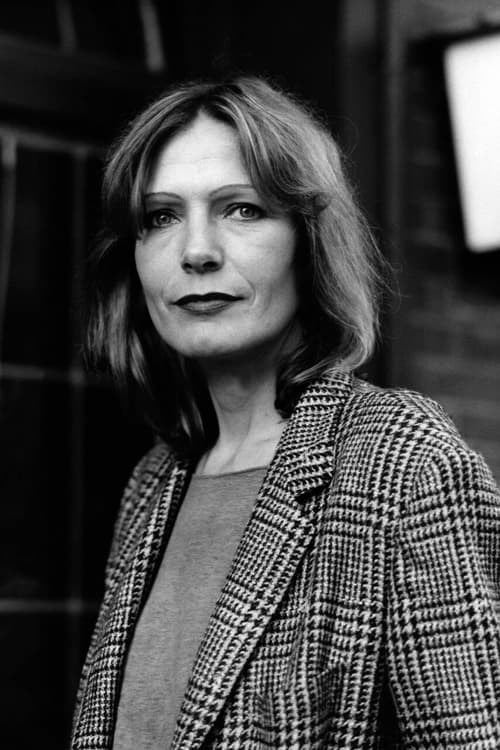Margit Carstensen
Nacimiento : 1940-02-29, Kiel, Germany
Historia
Margit Carstensen (Kiel, 29 de febrero de 1940) es una actriz alemana.
Tras estudiar interpretación en la Hochschule für Musik und Theater Hamburg, empezó a trabajar con el Theater der Freien de Bremen. Fue en esa época cuando conoció al director de cine Rainer Werner Fassbinder, con el que trabajó en muchas películas, desde 1970 a 1980.

Using unpublished and newly digitalised archive footage and film material, Bettina Böhler has brilliantly assembled this film about the life and work of the exceptional artist Christoph Schlingensief, who died in 2010.
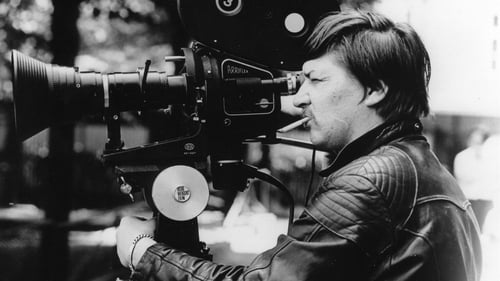
Herself
A film portrait of the influential Bavarian actor, director and screenwriter who publicly confessed
his homosexuality.

Rainer Werner Fassbinder was probably Germany’s most significant post-war director. His swift and dramatic demise at the early age of 37 in 1982 left behind a vacuum in European filmmaking that has yet to be filled, as well as a body of unique, multi-layered and multifarious work of astonishing consistency and rigour. From 1969 onwards, Danish director and film historian Christian Braad Thomsen maintained a close yet respectfully distanced friendship with Fassbinder. Fassbinder – Lieben ohne zu fordern is based on his personal memories as well as a series of conversations and interviews he held with Fassbinder and his mother Lilo in the 1970s.

Frau Sandberg
The film tells different stories in a kind of parallel Germany about love, affection and hatred.

The movie version of Christoph Schlingensief's stageplay.

Self
A documentary about the life of Karlheinz Böhm from his film career to his charity activities in Ethiopia.

Linda Barnes
Paul, a man suffering from cerebral palsy, lives an unfulfilled life in a nursing home. Sitting in his wheelchair, he fantasizes about a life in which people understand him, women find him irresistible, and he is be a force to be reckoned with. He places this imagined self in four different sexual fantasies, each with a different woman.

Frau Strietzel
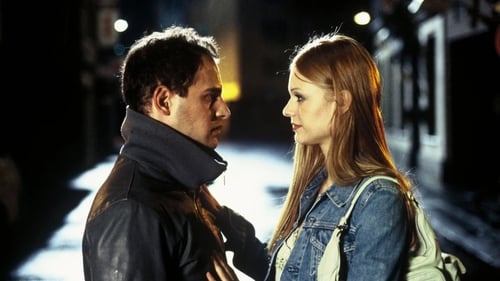
Roxy
Focuses on three very different siblings, all searching for happiness. Hans-Jörg is a sex addicted librarian, who is interested in young students. Werner is a successful politician with a dysfunctional family. Agnes, a trans woman, works as a table dancer in a night club. The three brothers just have one thing in common: their longing for a happy life.

Käthe

Die Leserin

Regine Gorler
Due to a delayed flight a group of German flight passengers have to wait in the hall of the airport of Manila. The crowd is quite mixed, ranging from an cultivated east German teacher couple up to sleazy sex tourists. As the waiting prolongs, more and more aggressions and long repressed behaviors shed their way to the surface.

Gunhild

Direktorin
A group of kids grow up on the short, wrong (east) side of the Sonnenallee in Berlin, right next to one of the few border crossings between East and West reserved for German citizens. The antics of these kids, their families, of the "West German" friends and relatives who come to visit, and of the East German border guards, all serve to illustrate the absurdity of everyday life on the Sonnenallee, and therefore throughout the former East Germany.

Mutter Timm
Gesche's Poison is a psychological portrait loosely based on the true story of Gesche Gottfried who became notorious in 19th century Bremen for killing fifteen people with arsenic. Known by her neighbors and friends as a merciful Christian, loving mother and devoted wife, she poisoned within fifteen years her parents, her brother, two husbands, three children and numerous friends. When caught, she never denied her deeds, but could not give any reason.
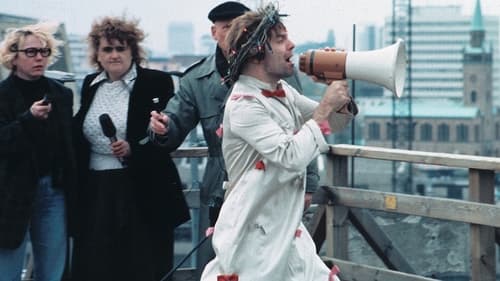
Self
An eccentric homage to the Rainer Werner Fassbinder days of German filmmaking.
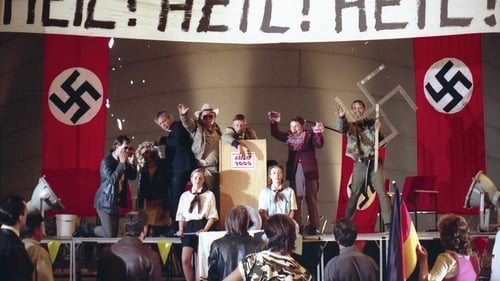
Margret
Germany, right after the re-unification. The people are out of control, blind hatred towards immigrants is common sense. In this time, a social-worker, with the mission to bring a Polish family to their destination (an immigration camp in a little provincial town called Rassau), gets kidnapped just as the family. Chief inspector Koern and his girl-friend start to investigate in this matter in Rassau, exploring a world of obsessive sex, mislead lust and an over-whelming irrational love to the German nation, infiltrating anyone's mind. Rascism doesn't start with shaved hair and boots but rather in the middle of society itself...
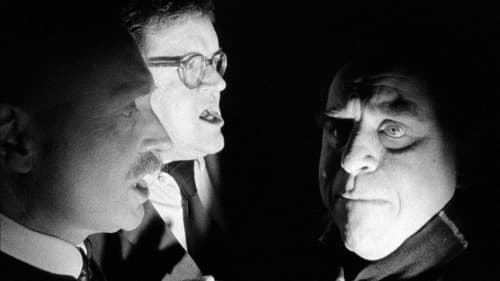
Martha Goebbels
On 30 April 1945, dictator Adolf Hitler, his wife Eva Braun, and prominent members of the Third Reich live out their final hour in the Führerbunker.
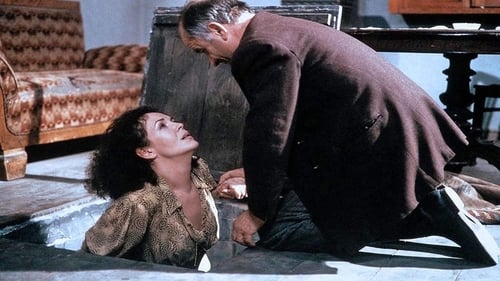
Eugenia
Polonia, invierno de 1942. Un campesino rico y solitario trabaja sus tierras sin preocuparse demasiado por los nazis. Es un buen hombre, aunque algo simple, y nunca se ha casado porque las mujeres lo ponen nervioso. Un día sorprende en sus tierras a una mujer, vestida con un abrigo de piel, que intenta robar una barra de pan. Al ver que está enferma y febril, decide acogerla en su casa para curarla. La mujer es judía y ha conseguido saltar de un tren que se dirigía a los campos de exterminio. El campesino no tardará en enamorarse de la mujer.

Sekretärin

Staatsanwältin
Oskar Panizza’s The Council of Love (1895) is a blasphemous play set in 1495, during the first recorded outbreak of syphilis, which Panizza satirically presents as the punishment from Satan for sexually active humans. As a result, Panizza was imprisoned for obscenity. Schroeter alternates scenes from the Panizza’s work with a dramatization of his trial, presenting the play as an expressionist spectacle performed by actors wearing exaggerated makeup who gesture and grimace grotesquely. The film thus forms a bridge between Schroeter’s use of tableaux in his early experiments with the political urgency of his 1980s films. On the eve of the AIDS crisis, Schroeter is presciently worried about disease as an excuse for governmental repression and the oppression of sexuality. - Harvard Film Archive

Margit Gluckmeister
Berlín, antes de la caída del muro. Cuando Marc regresa de un viaje encuentra a su esposa Anna cambiada, muy nerviosa y perturbada. Por fin, le confiesa que tiene una aventura y lo abandona. Marc cae en una terrible depresión que lo lleva casi al borde de la locura. Unas semanas después, el detective privado que ha contratado para que siga a su mujer es salvajemente asesinado. La verdad sobre la aventura secreta de Anna se revelará monstruosa.

Petra Vielhaber
Comedia de humor negro que satiriza las peripecias de una banda de terroristas de Berlín, cuyos miembros pertenecen a las clases altas. Un nuevo análisis de la sociedad alemana, común denominador de la mayoría de las obras del director.

Frl. Rosner
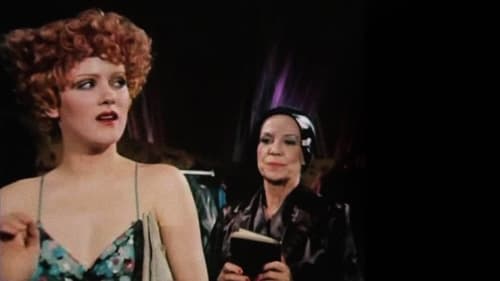
Sylvia Fowler
The main characters in this film are wives of rich men who have nothing to do because they have staff – like the cook, the maid, the hairdresser, the manicurist, the governess, the teacher, the tailor etc. – who work for them. Naturally, the wives themselves do not pursue careers, they depend on their husbands’ money. This is why most of their thoughts revolve around the husband. And because the husband only appears as “the” man, there is no man in this film. All women fight for the same man. Those who have one, want to keep him no matter what. And those who do not have one yet only have one goal: To take away somebody else’s husband.

Marlene
When Hitler watches Marlene Dietrich in a movie, he falls in love with her. He persuades her to come back to Germany to be with him, but upon her arrival she constantly insults and provokes him until he eventually, on her command, bites the carpet to bits.

Ariane Christ
Ruleta China es una parábola acerca del mundo burgués, sus ritos y sus mentiras. Ángela es una adolescente inválida, hija de padres ricos y liberales; pero su odio hacia ellos la lleva a tenderles una trampa para que un fin de semana coincidan en su casa de campo con sus respectivos amantes.
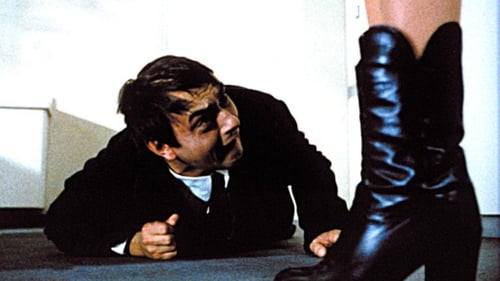
Andree
Walter, un poeta anarquista alemán, tiene dificultades económicas, pero su editor se niega a darle un adelanto. Entonces no tendrá más remedio que buscar otros modos de ganarse la vida.
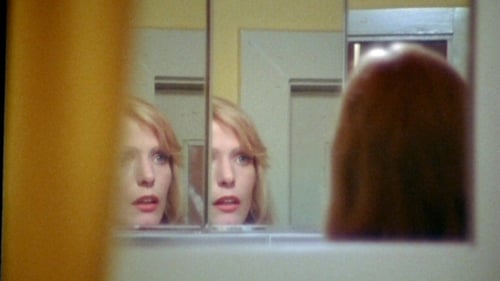
Margot
Margot Staudte es un ama de casa que quiere a su marido Kurt y a su hija Bibi y vive rodeada de comodidades. Pero, hacia el final de su segundo embarazo, se apodera de ella una angustia creciente. Después del parto, las drogas y el alcohol la calman aparentemente, pero su terror no disminuye.
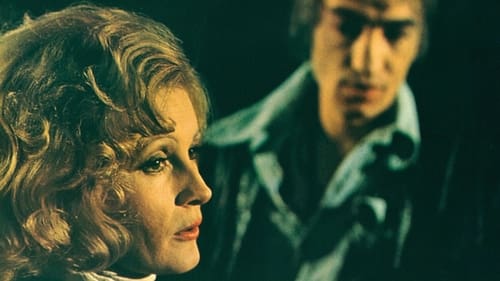
Frau Thälmann
Un obrero de una planta química, inesperadamente, en un acto de rebelión, asesina al hijo de su jefe, suicidándose a continuación. Este hecho transformará por completo la vida de su mujer (Emma Küsters) quien, con la falta de apoyo que recibe de un hijo (dominado por su mujer) y de una hija (que sólo busca su propia gloria), iniciará una odisea personal en la que tendrá que enfrentarse a manipulaciones mediáticas e ideólogos políticos que buscan utilizarla para sus propios fines, ignorando la única razón que a ella le mueve: defender y devolver la dignidad a la memoria de su marido.

Martha
La bibliotecaria Martha se encuentra de vacaciones en Roma con su padre, quien muere en plena calle víctima de un infarto. En la embajada de Alemania, queda fascinada por Helmut, al que volverá a ver más adelante en la boda de unos amigos, donde surge el amor. Una vez casados, Helmut se impone la tarea de educar a su mujer, a la que ve muy mimada e inmadura.

Nora Helmer
A childish wife reveals surprising strength when faced with blackmail. Based on A Doll's House by Ibsen, this is a video recording made for German television.
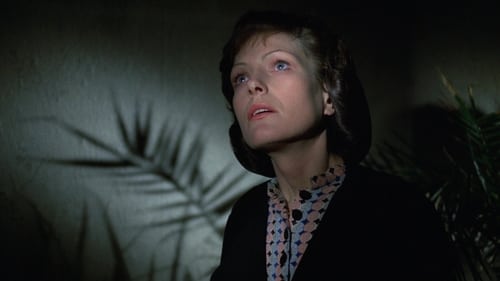
Frau Lindner
En 1925, en Alemania, Fritz Haarmann, es un ladrón homosexual y furtivo, con una licencia especial de la policía. Vende carne en el mercado negro. También mata a los niños y jóvenes, bebe su sangre, cose sus cuerpos y tira sus partes en un río. Ciertamente, lo que vende en el mercado negro es carne humana... Nueva reedición de la historia de "El Vampiro de Düsseldorf", acentuando en este caso su trasfondo de crítica social y explicitando sus elementos sádicos, homosexuales y canibalescos.

Geesche Gottfried
A very stylized TV version of the Fassbinder play. The set consists of a few pieces of furniture in front of a large screen on which coastal scenery is back projected. Geesche is a nineteenth century woman who wants to have a mind of her own. She defies convention and will do anything to achieve her freedom from oppression by her family and friends. (synopsis written by Will Gilbert)

Petra von Kant
Petra von Kant, una diseñadora de moda que acaba de separarse de su marido, vive con su secretaria-esclava Marlene (personaje simbólicamente mudo). Cuando su amiga y confidente Sidonie le presenta a Karin, una joven de origen humilde, se enamora locamente de ella y le promete que va a convertirla en una famosa modelo. Sin embargo, Karin la abandona poco tiempo después para irse con su marido que, después de un viaje, acaba de volver a Frankfurt. Petra cae entonces en una profunda depresión.

Berta
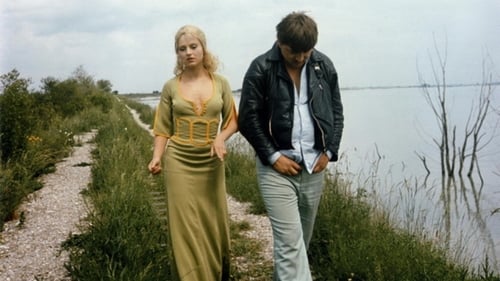
Margarete
El 3 de mayo de 1476, el pastor Hans Böhm dice haber visto la Virgen María en Niklashausen. Treinta mil campesinos creyeron que Böhm era el nuevo Mesías y se agruparon a su alrededor. Después de predicar la doctrina revolucionaria en contra el privilegio personal, fue arrestado por el obispo y quemado en Würzburg el 15 de julio, cinco meses después de su visión. La película no es una reconstrucción histórica, sino mas bien un ensayo de Fassbinder sobre cómo el pasado afecta el presente. (FILMAFFINITY)

Vittoria
Avant-garde adaptation of a Carlo Goldoni play. Well-to-do Venetians congregate in a coffee house and discuss their problems.
